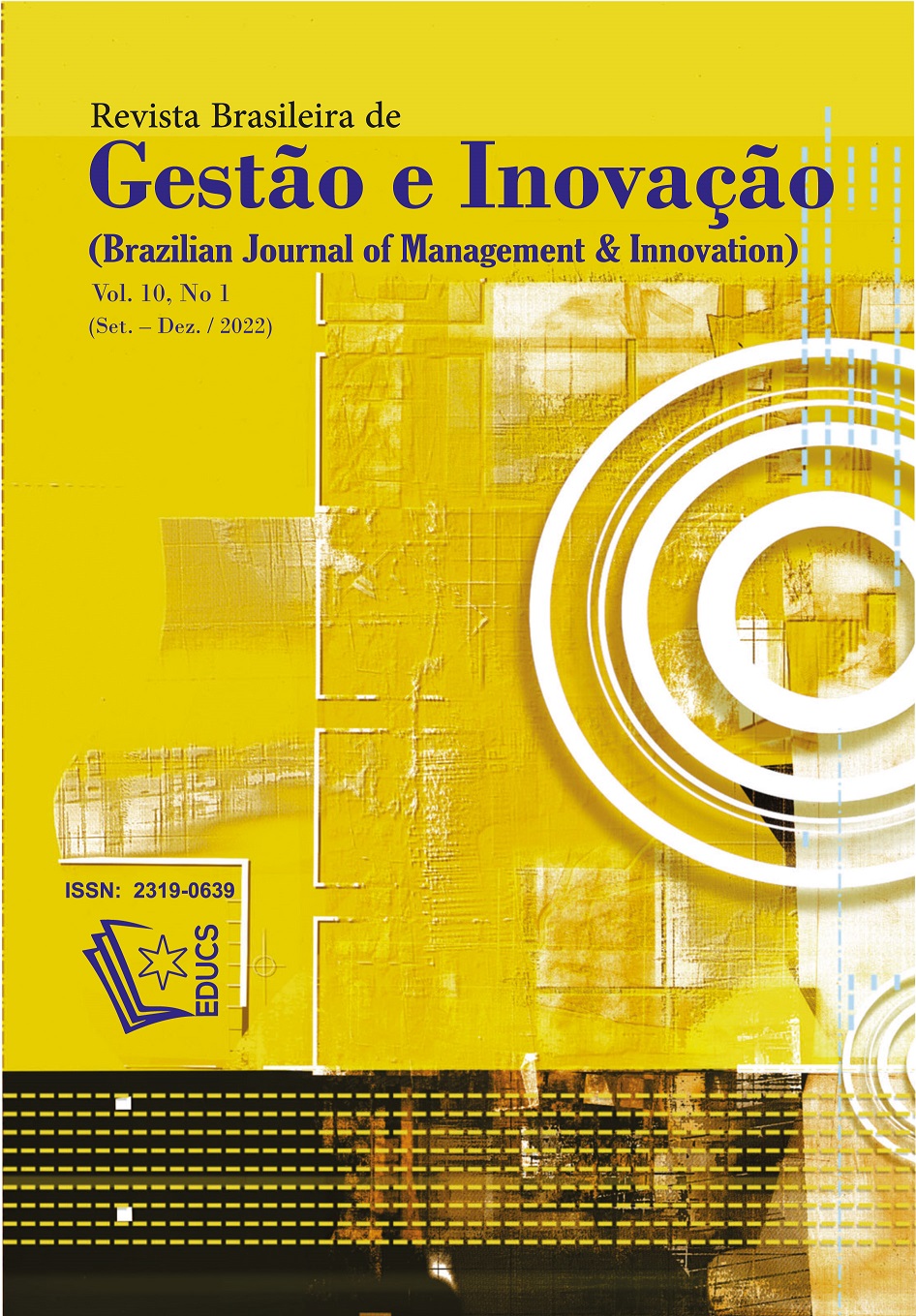REFLECTIONS OF INNOVATION INCENTIVE POLICIES ON THE FINANCIAL PERFORMANCE OF AUTOMOTIVE COMPANIES LISTED IN B3
DOI:
https://doi.org/10.18226/23190639.v10n1.02Keywords:
Inovação, Políticas de Incentivo à Inovação, Demonstrações Contábeis, Setor Automotivo.Abstract
Technological policy is a central part of the economic agenda in developed and emerging countries, aiming to generate technological capacity and motivate private investments. The aim of this study was to analyze the impact of innovation incentive policies on the financial performance of companies in the automobile sector listed on Brazil, Bolsa and Balcão (B3). The descriptive research, of a quali-quantitative nature, carried out data collection on the basis of Economática®, on the websites of the companies and B3. This study emphasizes the innovative actions carried out by companies in the automotive sector, during the period in which policies to encourage innovation are in force, and the perspective of innovations causing reflexes on financial performance. It is suggested that (i) the Lei do Bem, the Action Plan in Science, Technology and Innovation (PACTI) and the Productive Development Plan (PDP) brought favorable effects to Iochpe's Liquidity Indices, (ii) the Lei do Bem had a significant representation in Iochpe’s Capital Structure Indices and in Mahle’s Liquidity Indices, and (iii) the Plano Brasil Maior (PBM) favored the increase in Mahle’s Invested Capital. The study can help to encourage managers and guide companies to adhere to innovation policies when aware of the potential benefits it brings to the organization and other stakeholders, which can generate better results.
Downloads
Published
How to Cite
Issue
Section
License
Copyright (c) 2022 Brazilian Journal of Management & Innovation

This work is licensed under a Creative Commons Attribution 4.0 International License.
The author must guarantee that:
- there is full consensus among all the coauthors in approving the final version of the document and its submission for publication.
- the work is original, and when the work and/or words from other people were used, they were properly acknowledged.
Plagiarism in all of its forms constitutes an unethical publication behavior and is unacceptable. Revista Brasileira de Gestão e Inovação has the right to use software or any other method of plagiarism detection.
All manuscripts submitted to RBGI - Revista Brasileira de Gestão e Inovação go through plagiarism and self-plagiarism identification. Plagiarism identified during the evaluation process will result in the filing of the submission. In case plagiarism is identified in a manuscript published in the journal, the Editor-in-Chief will conduct a preliminary investigation and, if necessary, will make a retraction.
This journal, following the recommendations of the Open Source movement, provides full open access to its content. By doing this, the authors keep all of their rights allowing Revista Brasileira de Gestão e Inovação to publish and make its articles available to the whole community.
RBGI - Revista Brasileira de Gestão e Inovação content is licensed under a Creative Commons Attribution 4.0 International License.
Any user has the right to:
- Share - copy, download, print or redistribute the material in any medium or format, linking to RBGI site.
- Adapt - remix, transform and build upon the material for any purpose, even commercially.
According to the following terms:
- Attribution - You must give appropriate credit, provide a link to the license, and indicate if changes were made. You may do so in any reasonable manner, but not in any way that suggests the licensor endorses you or your use.
- No additional restrictions - You may not apply legal terms or technological measures that legally restrict others from doing anything that the license permits.
#RBGI







